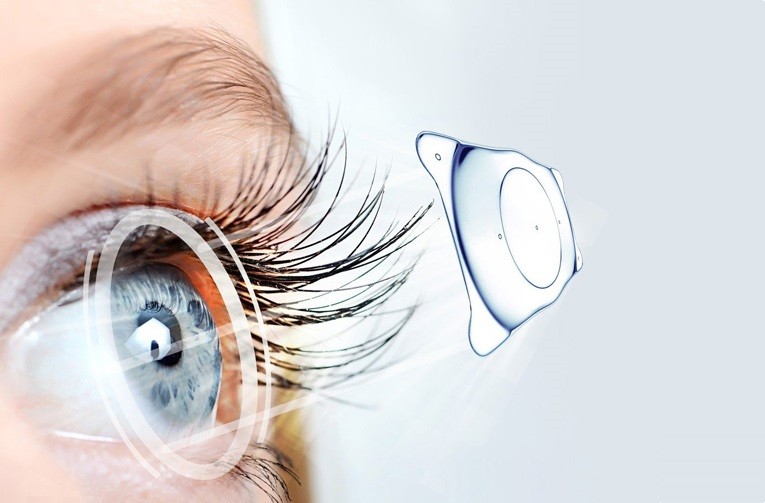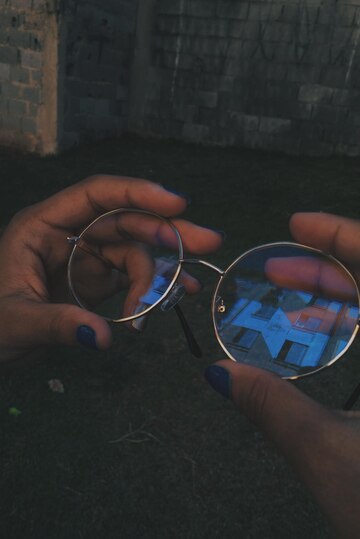See Clearly, Live Fully:
Correct Your Refractive Error Today
When the eye is unable to focus light correctly on the retina, which is a tissue at the back part of the eye that is sensitive to light, we say that there is a refractive error. As a result of this condition, one experiences blurred vision, and this can hinder activities like reading, driving or recognizing faces. Refractive errors are caused by an irregular shape of the eyeball, which hinders direct focus on the retina. These include myopia (nearsightedness nearsightedness), hyperopia (far-sightedness), astigmatism and presbyopia.
SYMPTOMS

Refractive errors cause different problems that affect both eyesight and general ocular comfort. There may be dissimilar signs associated with these depending upon the type and extent of defect, though some common ones include:
01
Difficulty Seeing at a Distance
If one has myopia (nearsightedness nearsightedness), distant objects appear blurry, making it difficult to see things such as road signs, boards, or TV screens.
02
Eye Strain
Asthenopia, as it is medically known, often occurs when one is constantly focusing on an object. Its symptoms are weary eyes, a burning feeling combined with general uneasiness around the eyes.
03
Difficulty Reading or Seeing Up Close
This often happens in hyperopia (farsightedness) and presbyopia because it becomes hard for people to focus on nearby objects, and this discomforts them while reading.
04
blurred vision
This sign involves seeing objects appearing hazy or not well defined, among other symptoms experienced by many people either singly or simultaneously affecting two seeing organs at once.
05
Difficulty with Night Vision
Uncorrected refractive errors can present challenges for nighttime driving and navigating through dimly lit areas due to poor vision in low-light situations. This can lead to increased eye strain.
06
Halos Around Lights
At night, you might see halos or glare surrounding lights; these may indicate severe refractive errors or astigmatism. These visual disturbances can significantly impact night driving.
They adjust the light entering the eye, correcting refractive errors, which is accomplished by lenses. Depending on personal needs, they come in different prescriptions and styles.
People put these lenses right on their eyes since they are skinny. This type has a more comprehensive visual field compared to glasses, so it’s better liked by many individuals who dislike using glasses all the time. Contact lenses exist in various types, e.g., soft or rigid gas-permeable or multifocal lenses.
It repairs the cornea and thus solves most cases of refractive error permanently but not temporarily outlined below:
- LASIK (Laser-Assisted In Situ Keratomileusis): A corneal flap creation through laser use then corrects this type of refractive surgery.
- PRK (Photorefractive Keratectomy): The surface layer called the epithelium is removed while the underlying corneal tissues are shaped using the laser treatment method.
- SMILE (Small Incision Lenticule Extraction): A small section of the cornea is eliminated via a tiny slit so as to reshape it and correct the refractive error.
- LASEK (Laser-Assisted Sub-Epithelial Keratomileusis): In contrast with PRK, the outer corneal layer is preserved and returned to its proper place after the surgery.
It refers to the temporary correction of vision by wearing specially designed hard contact lenses overnight that reshape the cornea. This helps those who do not want glasses or contact lenses enjoy clear vision during the day.
These are artificial lenses implanted in people’s eyes to replace their natural lenses. They are mainly used for patients with cataract disease. Moreover, they can also correct refractive errors, hence being suitable alternatives for individuals who cannot be operated on using lasers.
Such lenses are placed just anterior to the natural lens in an eye. They offer a long-term but reversible option for correcting refractive errors, especially when laser surgery is contraindicated, such as in children.
TREATMENT
WHY TO CHOOSE US ?
Choosing Jyoti Eye Hospital for refractive error treatment offers:
-
The Jyoti Eye Clinic is an excellent place for people with refractive errors, staffed by experienced ophthalmologists.
-
State-of-the-art technology is employed to make accurate diagnoses and provide tailored remedies such as LASIK and PRK.
-
Comprehensive care from consultation to post-operative follow-up, prioritizing patient education and comfort.
-
A patient-centric approach focused on safety and optimal outcomes.
-
A trusted reputation for excellent eye care backed by years of successful treatments.
-
Various alternatives, such as eyeglasses, contact lenses or advanced surgeries, can be used to treat cataracts.

